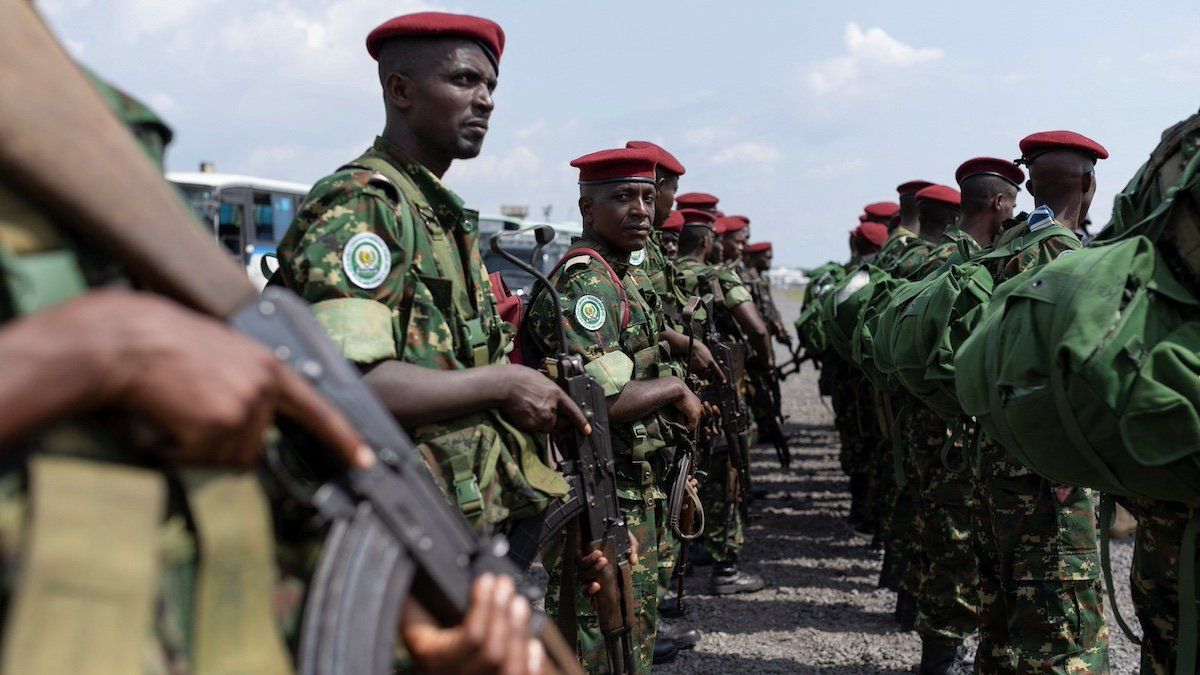The Burundian government has been detaining troops for refusing orders to deploy to the neighboring Democratic Republic of Congo, where Burundi is trying to stop the advances of a rebel group backed by Rwanda. The focus now is on the key border city of Goma.
The background: The area around Goma is rich in minerals, which armed groups and their backers have vied to control for years. The Rwanda-backed M23 rebel group began taking territory two years ago and funneling the spoils back to their patrons. UN peacekeepers have been largely unable to stop violence that has pushed hundreds of thousands of people into dangerous refugee camps.
A Kenyan-led intervention force managed to hold Goma last year, but withdrew in November, opening the way for M23. In December, Burundi intervened, but troops say they are fighting blind, hence the desertions. That leaves a South African-led coalition as Goma’s best bet.
What’s next? The fighting will be brutal, with 2 million residents of Goma in the crossfire. M23 is angling to cut the city off from the rest of the DRC. If they succeed, the rebels – and their Rwandan supporters – will be in a commanding position to extract concessions from Kinshasa.
